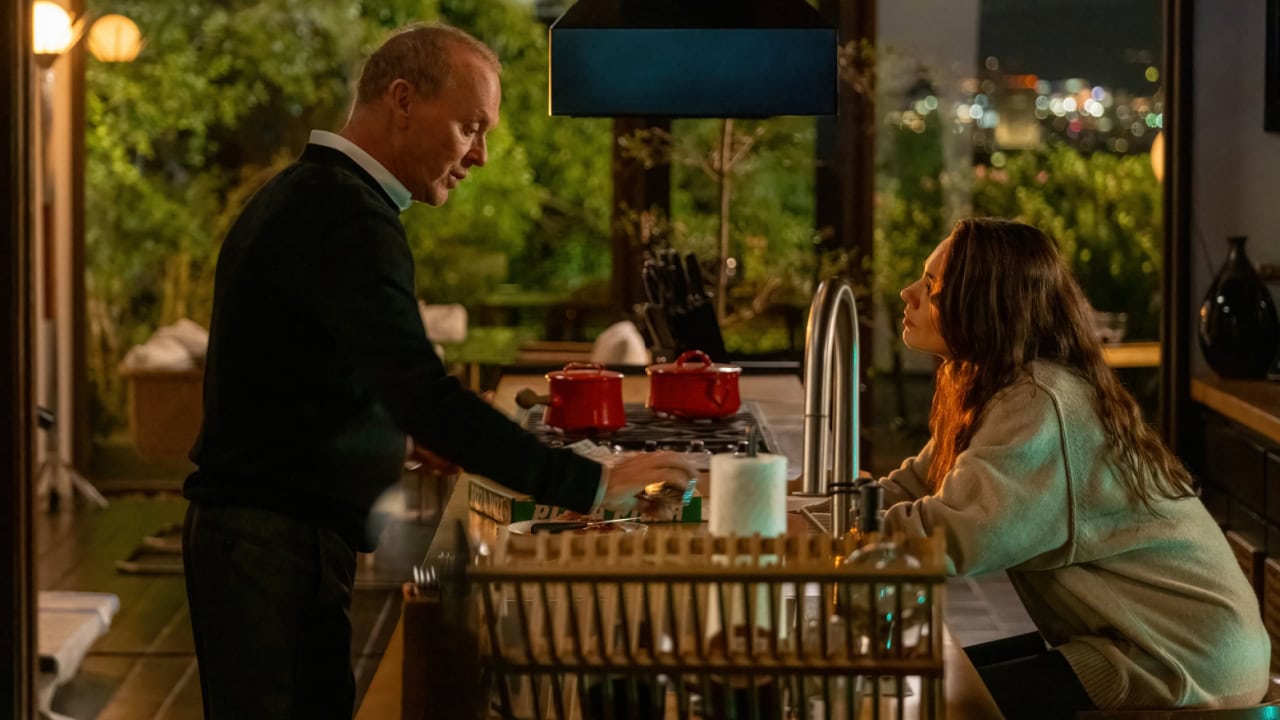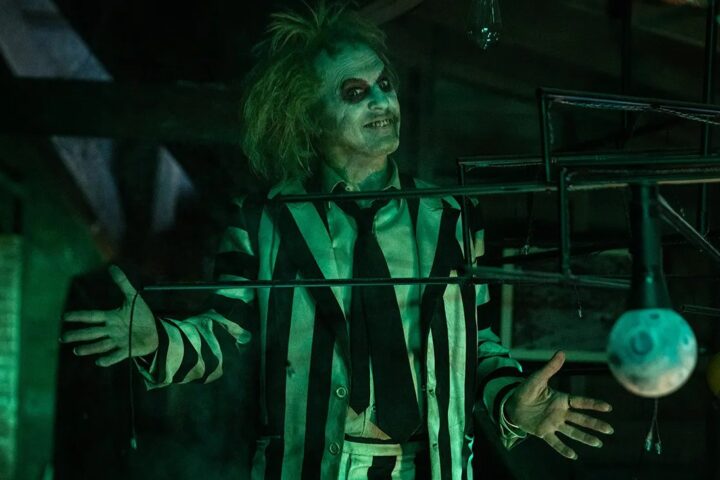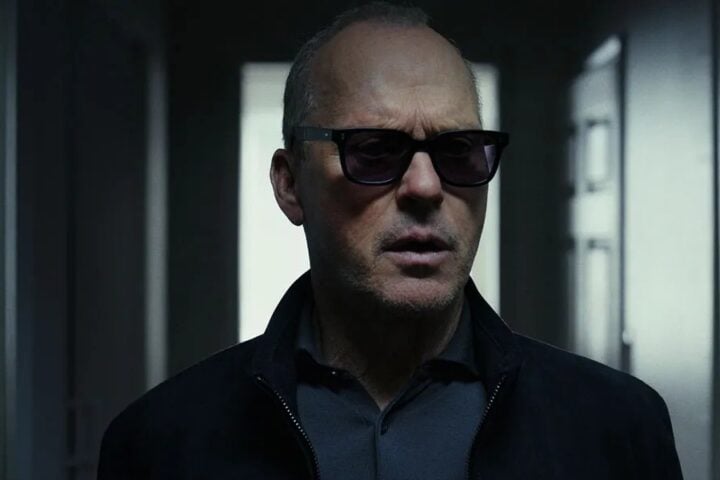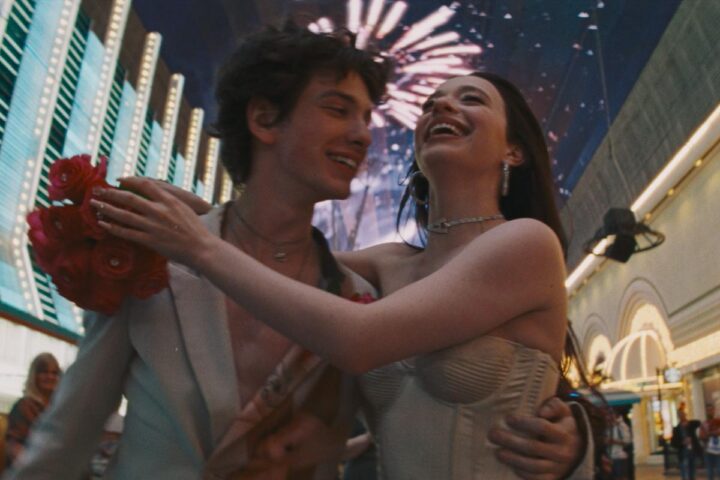Andy Goodrich (Michael Keaton) is edging toward his seventh decade of life when his wife, Naomi (Laura Benanti), announces that she’s checked into a Malibu rehab facility for 90 days. She also lets him know she wants a divorce. Andy, whose Los Angeles gallery of many years is on the verge of shuttering, is now facing the reality of needing to step up as a parent for his nine-year-old twins (Vivien Lyra Blair and Jacob Kopera).
These are the rather mundane inciting incidents of Goodrich, and writer-director Hallie Meyers-Shyer thankfully doesn’t juice them up with too much schematic plotting. Her second feature is an easygoing character study that’s stripped of the sitcom-y schtick of her first, 2017’s Home Again. At its best, Goodrich makes the canny choice to neither condemn its protagonist as a toxic villain nor redeem him as a good-hearted saint. He’s just Goodrich.
Andy is mostly well-meaning yet out of touch and self-involved (he didn’t even realize that his wife was abusing drugs in the first place). Shyer’s script and Keaton’s performance position him as someone whose often misguided interjections aren’t winning quirks but odd little signs of a man who’s trying a little too hard. We see this when he makes a point of egregiously complimenting the beauty of his daughter from his first marriage, Grace (Mila Kunis), even going so far as to call her his soul mate. Rather than present this latter declaration as a sweet moment with treacly sincerity, the film’s general vibe is “whatever you say, man.”
The film’s treatment of Lola (Carmen Ejogo), the daughter of a famed and recently deceased painter whose estate Andy is attempting to score in order to rescue his gallery, is also instructive. Andy mounts a somewhat persuasive pitch to Lola after she lets him know that she needs more time to grieve—a red flag that the script doesn’t overemphasize. When the heiress invites him and Grace over for a group breathing exercises ceremony at her house, Andy can never quite relax because his eyes are flitting around the room, opportunistically assessing the as-yet-not-commoditized artwork. Finally, the film dangles nabbing the collection over him before yanking it away at the last second. In this moment, Meyers-Shyer admirably refuses to depict a Black woman’s work as the salvation of the white, privileged Andy’s career.
But, then, some suspect political messaging crops up in the film, namely in the form of an Israeli nanny, Tali (Noa Fisher), who we’re clearly supposed to find endearing in her thickly accented diffidence and habit of smoking cigarettes in front of Andy’s children. Andy says that her being a former member of the I.D.F. is the reason that he hired her, which could charitably be read as shading of a flawed character, but who are we kidding?
Visually, Goodrich is no marvel, which is somewhat surprising given that it was shot by All of Us Strangers cinematographer Jamie Ramsay, and a series of dissolve-heavy montages are outright eyesores. But it does announce Meyers-Shyer as aspiring to be more than her mother, Nancy Meyers (who produced her prior film, which never moved out of her shadow). Goodrich is a moving and warmly humanist story of a vaguely unseemly, mostly harmless guy trying to be a better person. And with modest ambitions come modest rewards.
Since 2001, we've brought you uncompromising, candid takes on the world of film, music, television, video games, theater, and more. Independently owned and operated publications like Slant have been hit hard in recent years, but we’re committed to keeping our content free and accessible—meaning no paywalls or fees.
If you like what we do, please consider subscribing to our Patreon or making a donation.






